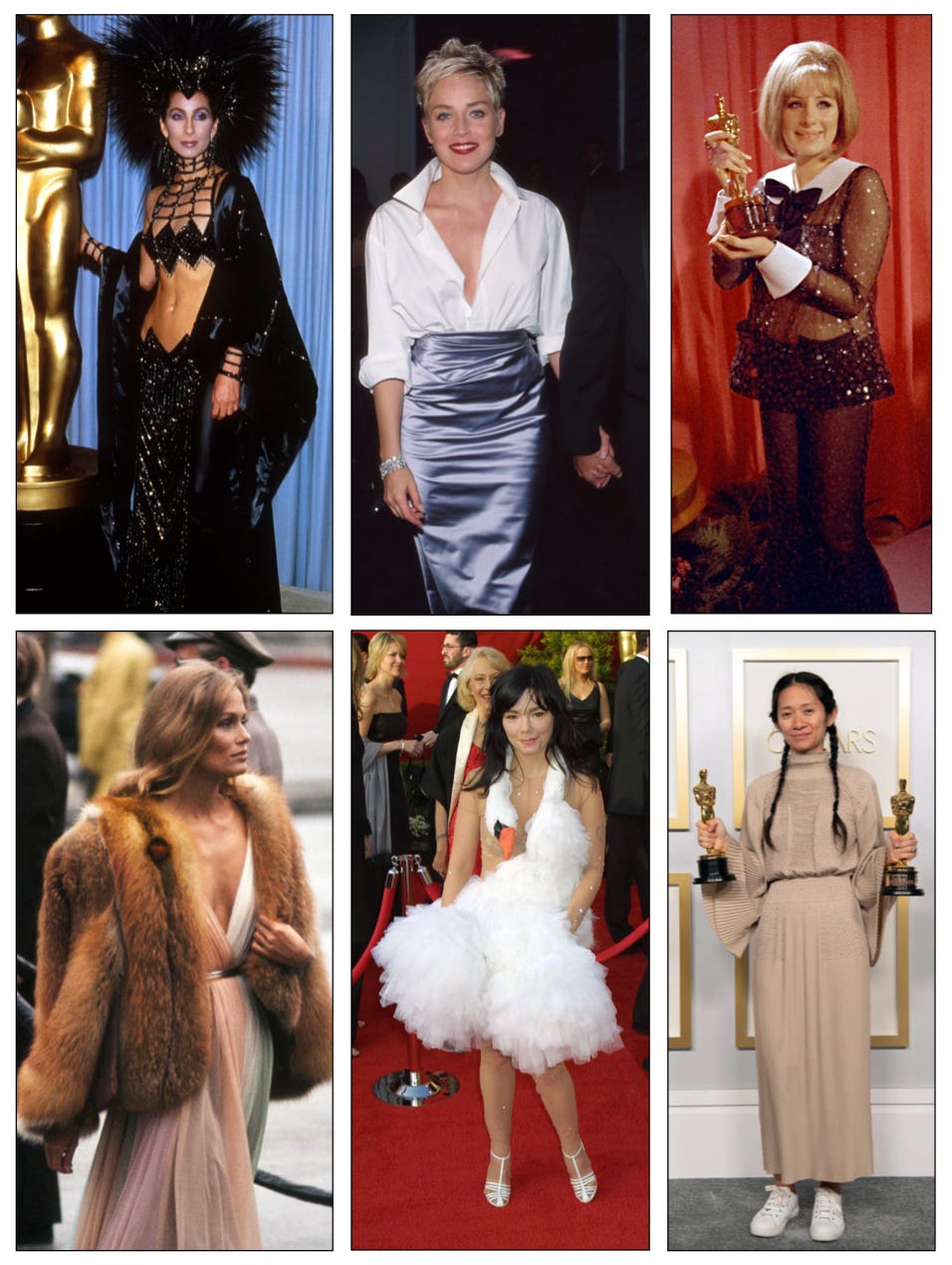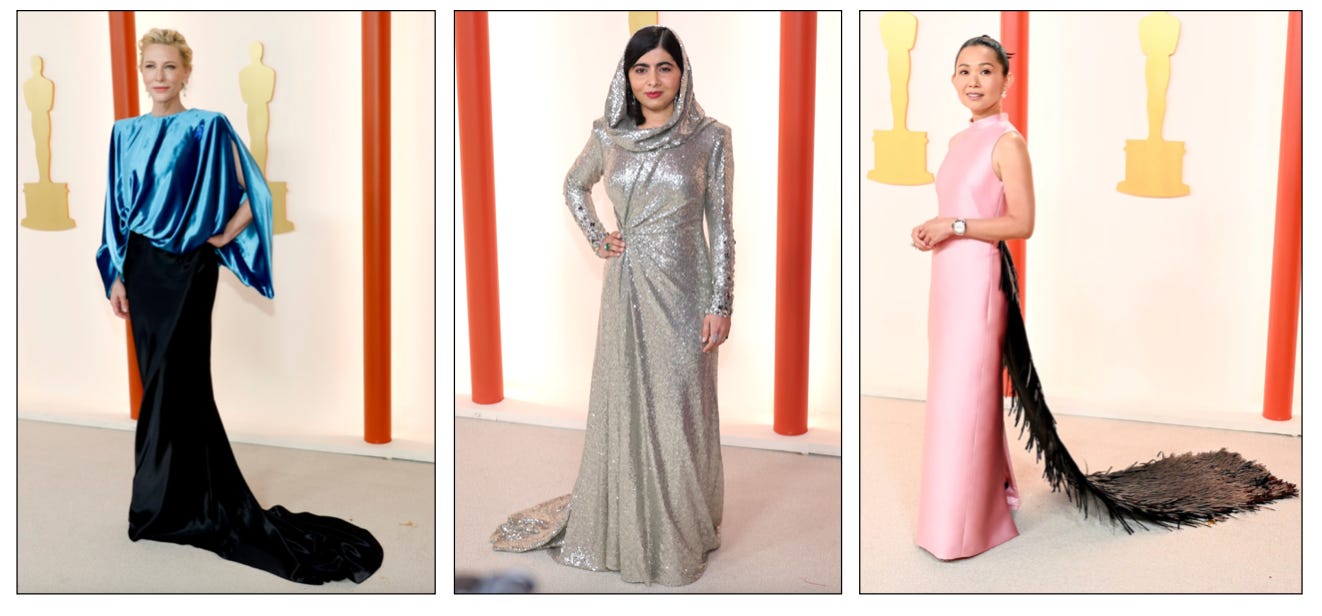

Discover more from All's Well by Nadine Zylberberg
Hi!
Daylight savings did a number on this household—in a good way. This week (and surely I’m jinxing it now), we are sleeping in, making pancakes for breakfast, and feeling, dare I say, energized. I’m also particularly enjoying the post-5 pm light, which has meant that dinner time is getting pushed later and later. Is summer approaching? Is it on the horizon? I am very excited, if you can’t tell.
On the Internet, this week, I’m left wondering if eye cream is just face cream in a smaller tub, figuring out what to read next, and marveling at the fact that momnesia is really a thing!
Here’s what else:
Well Read
This week, I really enjoyed a piece by Stephen Marche about writers and failure and, how, essentially, to write is to spend one’s life mostly in defeat. “Writers’ abilities and their careers simply do not correlate; they never have,” he writes. It sounds like a bummer, but what if it’s just a welcome dose of reality in a society that applauds the struggle → grow → succeed (in that order) narrative? That, Marche believes, feels saccharine and false. He calls on past writers to support his claims:
“James Baldwin had more basic counsel. He told The Paris Review: ‘Write. Find a way to keep alive and write. There is nothing else to say. If you are going to be a writer there is nothing I can say to stop you. If you’re not going to be a writer nothing I can say will help you.’ There follows Baldwin’s recipe for a career: ‘Discipline, love, luck, but, most of all, endurance.’ Discipline, love, luck can all be boiled down to endurance. They’re just motivations for endurance. James Baldwin’s writing advice can be summed up in a word: Persevere.
Good writers offer advice. Great writers offer condolences.”
His whole piece, which dives into epic failures of historically revered writers, can be found here.
Well Watched
Speaking of career failures and career successes… Did you watch the Oscars on Sunday? If you did, you probably saw that Everything Everywhere All At Once (EEAAO), A24’s futuristic indie multiverse dramedy about a Chinese-American laundromat owner and reluctant superhero, won big. Seven awards big! Best Picture big! Three of four acting categories big. Michelle Yeoh became the first Asian woman to ever win the Best Actress award, which blows my mind. But possibly the most heartwarming moment of the night came early on, when Ke Huy Quan won Best Supporting Actor for his work on EEAAO. A bit of backstory might help contextualize this comeback moment: Ke was a childhood actor with roles in Indiana Jones and the Temple of Doom and The Goonies. Pretty good, right? But the roles soon dried up and forced him to take a 20-year break from acting—until this project came along. People may dismiss the Oscars as formulaic, but I never get enough of genuine moments like this. Below is his speech in full.
Well Fed
What is Jewish food really? You think it’d be an easy one to answer, but it depends on who you ask. Bagels and lox mean nothing to a Jew in Cairo, for example. Claudia Roden’s The Book of Jewish Food has been out for nearly three decades and yet, this is the first time I’ve come across it. I’m more intrigued by its assembly than by the recipes themselves. Aimee Levitt writes about her experience of the book in Eater:
“Not all Jewish dishes are exclusive to Jews. Everybody in countries like Egypt, Lebanon, and Yemen eats falafel, for example. But Roden found that Jews tend to put their own twists on common regional foods to make them conform to the kosher laws, like using oil instead of butter. Sometimes, after leaving — or being expelled — from one country, they would bring their food to another, like the Yemeni Jews who brought a spicy relish from Arabia to Israel where they served it on falafel and therefore made falafel Jewish. Was this relish considered Jewish in Yemen? Would it have ever been served with falafel if not for the Jews?
Instead of trying to be completist or hand down definitive judgments, Roden decided — and this is the reason this book is wonderful — to put all these recipes back in the context in which they were first eaten by Jews. Food becomes a means of time travel. Even if there were no recipes at all, the descriptions of the Jewish communities of the past and what they ate would make the book worth reading.”
While this is probably the most all-encompassing, dare I say accurate, take on Jewish food, here are a few of the cookbooks I already love or am pretty sure I will: Yotam Ottolengi’s Jerusalem, Eden Grinshpan’s Eating Out Loud, Adeena Sussman’s Sababa (and Shabbat, which comes out this September), Chanie Apfelbaum’s Totally Kosher, and Michael Twitty’s Koshersoul. Would you call all of these cookbooks “Jewish”? Probably not. That’s what’s so sticky about the term. As Levitt notes, “Jewishness is a state of mind.” In all of the above authors, though, I recognize my own state of mind about my Jewishness; more than anything, it’s about tradition, togetherness, vibrant flavors, full plates, and always dessert.
Well Drawn
This week’s cartoon pick by Liana Finck feels appropriate following Marche’s piece on a career in writing, or in any of the arts for that matter. Follow Finck on Substack for more nuanced, illustrated takes on life.
Well Worn
Culturally, the Oscars have really become equal parts awards show and fashion show—which is fine by me. I’ve got the time! Give me all the awkward red carpet interviews and view-obstructing dresses. My favorite looks this year came by way of actress Hong Chau in Prada (The Whale), Malala Yousafzai in Ralph Lauren, and Cate Blanchett in Louis Vuitton (Tár). And while many more women, and men, on the red carpet looked fantastic, they also looked a little bit perfect in a way that’s… boring. The thought first came to me via Sofia Coppola’s Instagram earlier in the weekend. On Saturday, she posted a mesmerizing collage of red carpet fashion with the caption, “Happy Oscars weekend! Love this collage by Sara Cwynar and remembering when Oscars fashion was more personal and less perfect.”
Coppola also wrote about this in 2018 for W magazine, sharing a sentiment that’s still resonant today: “I wish we lived in a culture where the actresses who aren’t afraid to take daring roles in films could also take some chances and dress like themselves. I wish the business of fashion wouldn’t get in the way of personal style and self-expression.”
Naomi Fry echoes this argument in The New Yorker, but updates it to include Instagram accounts that have revived red carpet dresses of yore. Both of them drive home the point that the celebrity stylist has completely changed how stars dress, and the economics of it all. To that end, I went back and collected some of the Oscars dresses I love the most—and only one of them is from this decade. I still think about these outfits a lot. Personal, not perfect.

More from me next week. x
Subscribe to All's Well by Nadine Zylberberg
Weekly links and musings from my little corner of the Internet












